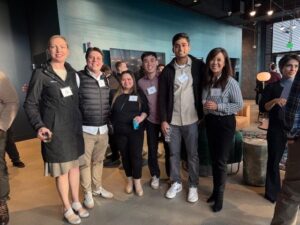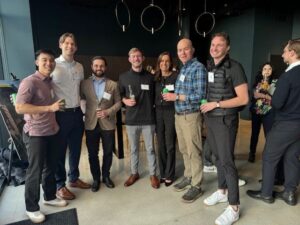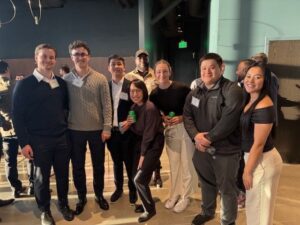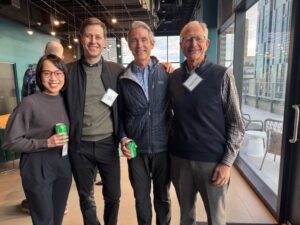Transfer student Helen Lee shares lessons learned and offers advice to incoming students.
Author: Melissa Best
From architecture and retail to a mission-driven career in real estate
Raj Dewangan, MSRE ’24, has successfully utilized the skills gained from his master’s degree at UW to contribute to the development of affordable housing for indigenous populations in the Seattle area.
Student Profile: Teera Bangsaruntipya
Real estate is so much more than just buying and selling houses! Learn more about this multidisciplinary field from transfer student Teera Bangsaruntipya
Student Profile: Cameron Wilbur
Should you choose to major in real estate? Cameron shares his experiences in the program.
Real Leaders in Real Estate Series
We are excited to share the College of Built Environment’s youtube channel, with the department’s playlist featuring Jeff McCann’s Real Leaders in Real Estate Series. Learn how Runstad Board member Monica Wallace creates place and communities people want to live in through retail. Explore the modern co-housing movement with MSRE alumni Alastair Townsend. Celebrate Women in Construction month with Taylor Benson of Silver Streak Inc. and undergraduate real estate student Jamie Nguyen. Affiliate Instructor Jeff McCann created the Real Leaders in Real Estate series to feature thoughtful leaders making an impact in the built environment. Jeff has interviewed students, alumni, board members, and others across multiple disciplines. Check it out!
RE Club and Runstad Board Hosts Winter Happy Hour
On February 27, 2025, the UW Real Estate Club and the Runstad Advisory Board co-hosted a mid-year networking happy hour event, bringing over 50 current MSRE students, real estate club members, RE department staff and faculty, and advisory board members to the rooftop deck of Chapter Building I. Located a short walk away from the University of Washington campus, in the heart of the University District, the Chapter Buildings (I and II) are two elegantly designed mixed-use office, life science and retail buildings, encompassing 240,000 square feet of state of the art office space, and opened just last year. The Chapter Buildings were developed by Touchstone, a subsidiary of Urban Renaissance Group, and Portman, a privately owned national real estate investment, development, and management firm.
This was the first event of its kind and provided a unique opportunity for current graduate and undergraduate students to connect with advisory board members, and soak up their extensive industry insights. Guests enjoyed a series of hors d’oeuvres and beverage options while taking in an expansive view of the Seattle skyline.
This event was made possible by the Runstad Advisory Board’s own Laura Ford, who manages the Chapter Buildings’ office and life science leasing. The Runstad Department of Real Estate is grateful to our advisory board members for continuing to support our current students and to help expand the reach of our masters and bachelor’s degree programs.
MSRE Profile: Finnegan Syrie
Finnegan Syrie is a current MSRE student at UW Runstad Department of Real Estate and the 2024 recipient of the Foster Pepper Fellowship.
From Blueprint to Bottom Line, Practical AI in Real Estate
Please join us for the annual Real Estate Symposium: From Blueprint to Bottom Line, Practical AI in Real Estate on Wednesday, February 12th. Breakfast starts at 8 am.
Runstad Graduation Reception
The annual graduation reception for graduating students and their families will be here soon! Please save the date of June 13th.
Runstad Department Career Fair Feb 7th
The annual Real Estate Career Fair is on Friday, February 7th in Gould Hall. This career fair is open to students in the Master of Science in Real Estate program, the real estate major, and real estate minor. This is an excellent opportunity to meet employers looking to hire students for internships and/or full-time positions.



